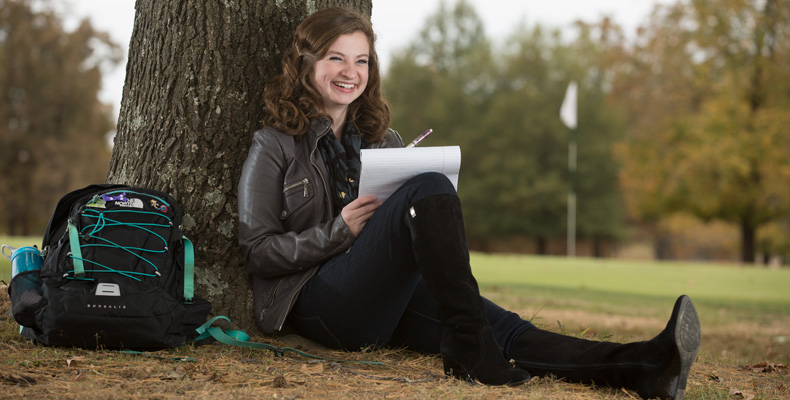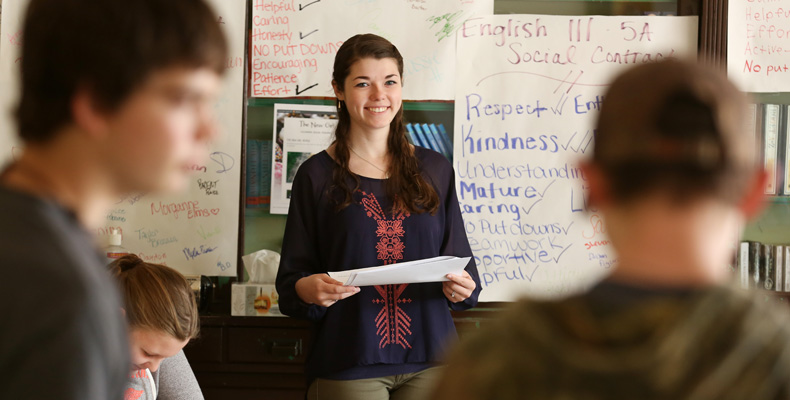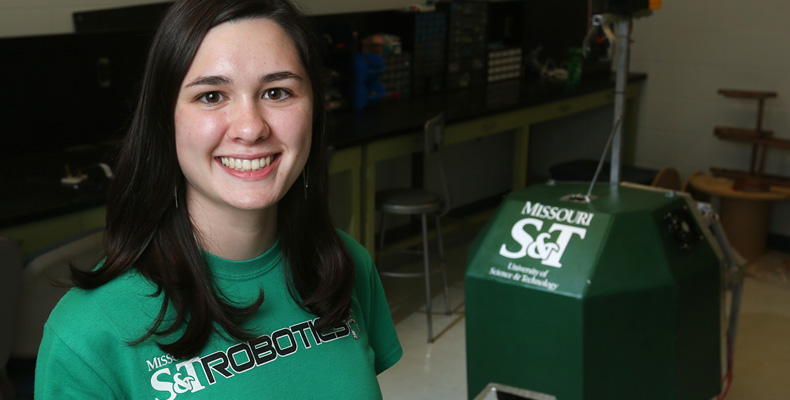
Arielle Bodine, an applied math and economics double major, recently researched why professional golfers receive endorsements through the Opportunities for Undergraduate Research Experience at Missouri S&T. She’s shown here at the S&T Golf Course. Sam O’Keefe/Missouri S&T
While some undergraduate students peer through microscopes or write computer programs for their research projects, senior Arielle Bodine made the world of professional golf her laboratory. The applied math and economics double major recently took an eagle-eyed look at the factors that led Phil Mickelson and 46 other top professional golfers to pick up valuable endorsements. Her research was part of the Opportunities for Undergraduate Research Experience at Missouri S&T.
“Professional golfers make a significant portion of their yearly earnings from sources that are not tournament purses,” says Bodine. “In fact, many golfers make more money from endorsements and off-course appearances than they do from golfing in tournaments.”
Bodine, of St. Charles, Missouri, credits Dr. Michael Davis, associate professor of economics and an expert in sports economics, with opening the door for her to tackle a research project.
“I was taking his Intermediate Macroeconomic Theory class and he asked me if I had ever done an OURE project,” she says. “I thought it would be cool but had never pursued it. Now I’m absolutely glad I did.” [Read more…]


Recent Comments